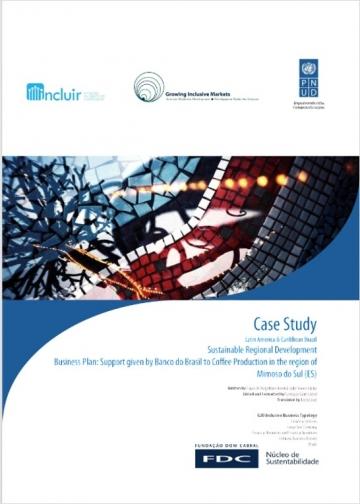Banco do Brazil: Company case study

Executive Summary
Banco do Brazil (BB) is a Brazilian financial institution with expressive performance in promoting economic and sustainable development. It assists more than 25 million customers in Brazil and abroad. BB’s main objective is to contribute to social development aligned with public policies and the demands of the society. In this sense, BB developed the National Strategy for Sustainable Regional Development – or National Plan for Sustainable Regional Development – to identify and develop the potential of regional communities in the whole Brazil, specially focusing on leveraging local productive activities, job creation, and boosting revenues and social welfare.
This strategy comprise is using BB’s local agencies network for promoting stakeholder engagement and maximizing the regional sustainable development based on the mobilization of economic, social and political actors. Initially, it was implemented in just a few regions in Brazil. However, Sustainable Regional Development business strategy gained national reach along the years according to BB representatives. Until 2005, over 1,515 business plans had been implemented to support productive activities in 1,945 Brazilian municipalities, by means of Sustainable Regional Development strategy. Among them, it is worth mentioning the municipality of Mimoso do Sul, in Espirito Santo state, which deserves attention due to the meaningful results achieved.
During the diagnosis phase, the assessment focused on, among many others, the coffee production conditions and the community empowerment status. To overcome the challenges identified in these two issues, Banco do Brazil local agency articulated new partnerships with the local actors who were responsible for offering empowerment trainings targeting the rural producers and increasing the access to productive credit and agro-industrial diversification opportunities. These partnerships were also responsible for attracting the financial support needed for the regional agroindustry growth, by means of new investments.
The implementation of Sustainable Regional Development strategy in Mimoso do Sul also enabled the Palmeiras Resident’s Association empowerment, observable by the increase in the community education rate, reduction of the rural exodus and the recognition by the Fair Trade awards/classification.
In terms of rural production, the collected data showed an increase in Palmeiras’ production: before Sustainable Regional Development startegy, the average production was 20 bags per hectare/year, in 2014, however, some farmers reached 70 bags per hectare/year production.
For Banco do Brazil, the main benefit generated by Sustainable Regional Development strategy was the improvement of corporate image and increase in the number of customers. Sustainable Regional Development success in Mimoso do Sul highlights the need of designing strategies models that can be replicated in other communities.